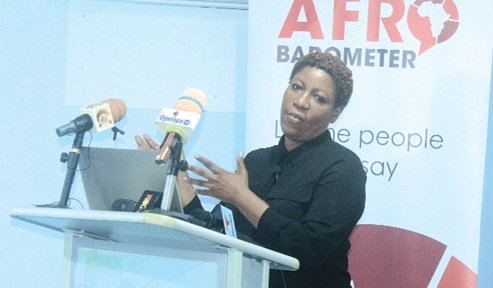Support for democratic elections remains high with most Ghanaians, favouring it as the best way to select leaders of the country, the Afrobarometer Round 10 survey has revealed.
The survey that interviewed a nationally representative sample of 2,400 adult Ghanaians (18 to 56 and above) in August 2024, had 81 per cent of the respondents affirming their support for democratic elections, while 18 per cent said “since elections sometimes produce bad results, we should adopt other methods for choosing leaders for the country.”
It sampled the views (perceptions) of Ghanaians on which institutions they trusted most, the ones that are corrupt and the efficacy of elections in the country ahead of the December 7 general election.
Elections
Other key findings of the survey report, released last Friday, indicated that six in 10 citizens (60 per cent) said the 2020 general election was “completely free and fair” or “free and fair with minor problems,” while a candidate’s honesty (90 per cent), character (88 per cent) and campaign promises (59 per cent) would be the three major factors that would influence voters choices in the 2024 polls.
It said 58 per cent of the respondents said they would vote for presidential and parliamentary candidates from the same political party, while only 15 per cent said they would vote for presidential and parliamentary candidates from different political parties.
Again, six per cent said they would vote for independent presidential and parliamentary candidates, while more than eight in 10 Ghanaians (85 per cent) indicated they had little or no fear of falling victim to political intimidation or violence during campaigns in the last general election, while 14 per cent said they feared it “somewhat” or “a lot”.
Trust in institutions/corruption
The report, launched by the Director of Research of the Ghana Centre for Democratic Development (CDD-Ghana), Dr Edem Selormey in Accra last Friday, revealed that among key public institutions, the Ghana Armed Forces, religious leaders, traditional leaders and non-governmental and civil society organisations were the most trusted.
“Trust in key state institutions/officials witnessed marginal declines compared to 2022 but major declines since 2012,” the report said.
“Among key public officials, the police, the Presidency, tax officials, Members of Parliament, Judges and Magistrates are most widely perceived as corrupt,” it stated.
The survey further revealed an overall decline in trust in key state institutions since 2022 and an even steeper drop compared to a decade ago in 2012.
“Three-fourths (74 per cent) of Ghanaians say the level of corruption in the country increased “somewhat” or “a lot” over the past year, a three- percentage-point decline compared to 2022,” it said.
“Only about a quarter (26 per cent) of Ghanaians believe that people can report corruption without fear of retaliation, a decline of four percentage points compared to 2022,” the findings revealed.
The findings of the survey also highlighted a call to action for leadership reforms, stronger anti-corruption measures and enhanced accountability factors critical to restoring public faith and strengthening the country’s democracy.

